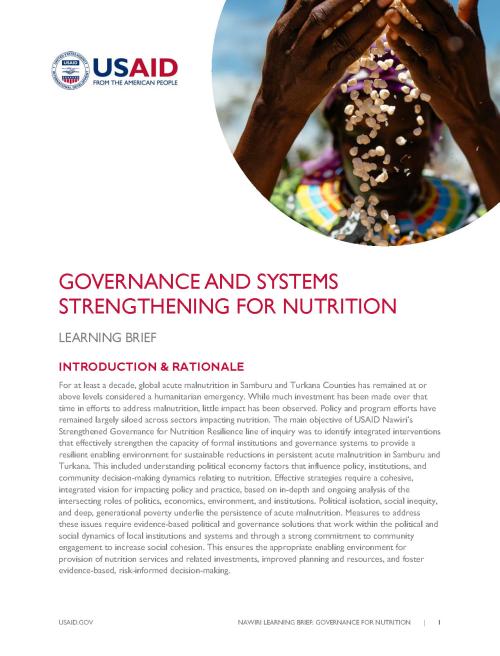This learning brief summarizes key findings and insights from an analysis of the role of governance systems and formal institutions in shaping patterns and trends in acute malnutrition. It proposes integrated interventions to strengthen the capacity of formal institutions and governance systems to provide a resilient enabling environment for sustainable reductions in persistent acute malnutrition. USAID Nawiri will capitalize on opportunities presented by a government transition to give a more central role to and advocate for a nutrition agenda at county and ward levels, and to leverage community engagement to reduce the risk of election-related conflict and build social cohesion that supports improved nutrition outcomes. For nutrition outcomes to be prioritized, county planning and budgeting processes must be well-coordinated across all sectors. Proven and meaningful opportunities for public participation and advocacy in planning and budgeting processes can increase social accountability and improve the relationship between counties and communities. Migration caused by climate change and conflict alter social dynamics and pressure social services and safety nets. Ongoing land reform is a strong structural driver of pastoralism-informed livelihood diversification. Failure to consider gender, social norms, and cultural barriers will undermine the efficacy of planned interventions. Supporting systems that guarantee equitable resource distribution and address community grievances is vital to conflict mitigation. Finally, strengthening the existing information system will improve coordination for information use and support evidence-based and risk-informed decision making.
Learning Brief
Full Report(s)
